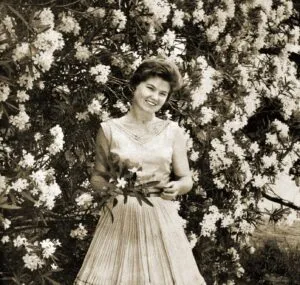Off the page: ‘The Deepest South of All’
A Malaysia-born Londoner with a resume stacked with stints in janitorial work and club DJing may not seem at first glance like the natural author behind multiple travelogues of the Mississippi Delta. Then again, maybe Richard Grant suits the job perfectly, a globetrotting journalist with a history of forging rivers in Tanzania, downing rattlesnake pills in the Sierra Madre, and—perhaps most perplexing of all—abandoning an apartment in New York City for the isolated hamlet of Pluto, Mississippi, from which his bestselling book, Dispatches from Pluto, navigated him into a stream of outsider narratives in the tradition of Dickens’ American Notes—one man’s journey through the strange people and places of, in this instance, what might be called one of America’s most esoteric states.
Grant’s most recent book, The Deepest South of All: True Stories from Natchez, Mississippi, continues to meander along Mississippi’s never-ending stream of contradictions, this time hearkening to Eudora Welty’s Some Notes on River Country, whose words on the characterization of placehood guide Grant’s work via epigraph. Sure enough, Grant takes great pains to adjoin the Natchez of the past with the Natchez of the present in modes both visceral and contemplative, from humorous accounts of contemporary capers to unsettling reminders of the city’s past (and some residents’ occasional tendency to deny it), oscillating between recognizably gossipy garden clubs in antebellum homes to the near-legendary history of Abd al-Rahman Ibrahima, a real-life prince-turned-slave whose tragic tale of capture, struggle and eventual return to Africa underlines the wobbly balance between Natchez’s once-storied wealth and the subjugation which made it so.
Grant’s tour through dinner party tableaus and tumbledown neighborhoods is perhaps a journey seen through a cinematographer’s chair as opposed to an actor’s, all while stirring up a recipe of anecdotal tales for readers to chew on. With one foot in the absurd and one in the pristine, the characters of Natchez may wear a crown or a cap of bells depending on the way their shadows fall.
Perhaps the best summary comes from the guide of a haunted-house tour in the latter half of the book: “In Natchez, it’s smarter to be more afraid of the living than the dead. This is such a gossipy, incestuous little town. We don’t really go out anymore, but stay here in our Shangri-La. The paranormal stuff gets intense sometimes, but it’s really okay.” Ghosts or no ghosts, I have a feeling she’s right.












